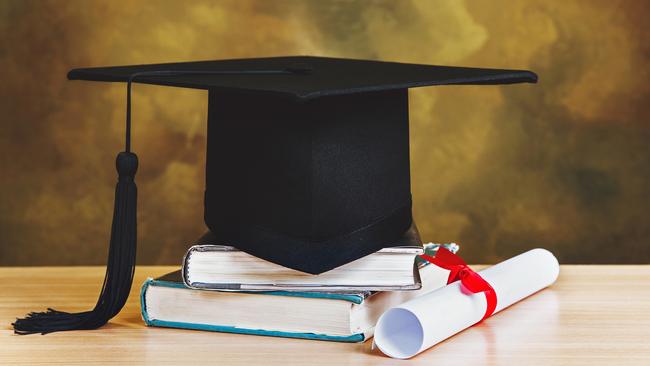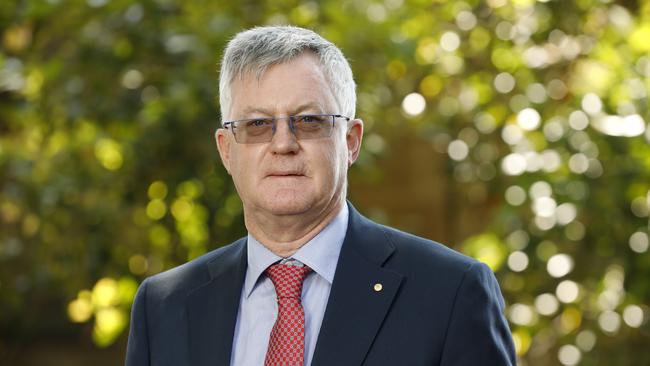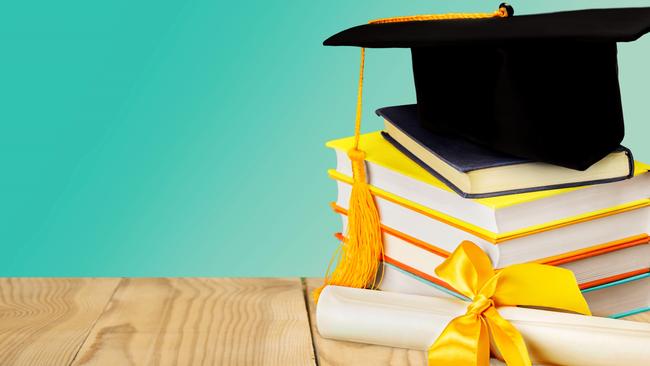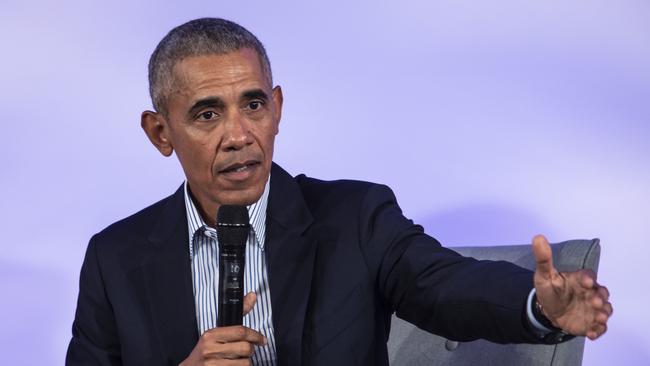
But if even high-profile thinkers on the Left agree with conservative critics of the direction of modern universities, perhaps it is time for journalists to have an open mind.
The federal government spends more than $30bn a year on tertiary education.
University vice-chancellors are now paid like chief executives: many are on salaries well over a million dollars a year, with generous superannuation and leave entitlements.
An interview this newspaper’s national affairs editor Simon Benson published last Wednesday did not get the media attention it deserved.
Benson was told by Martin Parkinson, the retiring head of the Department of Prime Minister and Cabinet, that the “stifling of legitimate debate on issues such as climate change posed a big risk for the broader community”.
READ MORE: ‘No excuse’ for unis’ inaction on free speech | Janet Albrechtsen — our unis have lost their way | Students fear free speech crisis
Parkinson, the new chancellor of Sydney’s Macquarie University, is no Coalition culture warrior. He was the first secretary of the Department of Climate Change under the Rudd government and was made secretary of Treasury by Julia Gillard in 2011. He was a regular target of conservative media critics after he was returned to the PM&C role by Malcolm Turnbull in 2015 after being removed by Tony Abbott in 2013.
Parkinson told Benson: “I think universities are symptomatic of a problem we have in the broader community where we are losing the capacity of civilised discourse and debate … Some people are not coming at issues prepared to concede that another person might have a view worth listening to … You get into a bad place … if you pre-emptively rule out certain perspectives.”
Indeed, like several universities ruling out hosting a chair in Western civilisation funded by a bequest from the late healthcare billionaire Paul Ramsay. Or Flinders University and the University of Western Australia ruling out a $4m, four-year federal government offer to host Bjorn Lomborg’s Copenhagen Climate Consensus centre.

To those you can add James Cook University’s decision to sack scientist Peter Ridd. It says the decision was over an internal disciplinary matter but the public takeout has been Ridd was removed for questioning Great Barrier Reef research by fellow academics. This cost JCU $1.2m in court.
Last weekend this newspaper’s Rosemary Neil asked what kind of country does not teach its own literature? She reported no Australian university English department now offered undergraduates a major in Australian literature. The story followed the decision of Sydney University to suspend funding for a professor of Australian literature, a chair founded in 1962. This leaves only the University of Western Australia with a chair of Australian literature.
Extraordinary when you reflect on world-class Australian authors from Nobel prize winner Patrick White through to Booker Prize winners Peter Carey (twice), Thomas Keneally, Richard Flanagan and South African-born Australian resident J.M. Coetzee. Booker shortlisters included David Malouf, Tim Winton and Kate Grenville. Add one of the great poets of the past 50 years in any language, Les Murray.
What on earth are our universities about if they are not about helping our nation understand its own literary heritage, studying Western civilisation, examining the economic dimensions of climate change or freely arguing Great Barrier Reef science? Lest Twitter twits imagine this shows a disdain by this column for universities, I spoke regularly at politics and journalism departments at Brisbane’s three major universities when editor in chief of Queensland Newspapers. Everyone in my immediate family has a degree. I count former Melbourne University VC Glynn Davis a 25-year contact and friend. Same with JCU VC Sandra Harding, on whose faculty of business advisory board I sat when she was dean of Business at Queensland University of Technology.

Senior academic positions carry great weight in their communities, Yet it seems the weight of managerialism and need to attract fee-paying foreign students may be forcing VCs to take their eyes off their institutions’ core mission. Universities have for more than 1000 years been centres of reason rather than enforcers of faddish belief. Given how much they now cost taxpayers and students in the form of HECS loans uni leaders need to think carefully about whether they are acting in the national interest.
Universities have been caught marking foreign students higher than they deserve, something that could threaten the education export industry. Several universities have been challenged over research projects with institutions in China that our authorities fear could compromise national security. This newspaper and the ABC have reported on universities in which Confucius Centres are used to keep tabs on — and sometimes intimidate — Chinese students.
University of Technology Sydney and Perth’s Curtin University are both reviewing their research involvement in surveillance technology being used in western China to crack down on racial minorities.
This comes as a recent report from UTS’s Australia-China Relations Institute shows research collaboration between Australia and China will surpass that with the US later this year. While joint Australia-US research was mainly in life sciences, projects with Chinese researchers focused on engineering and computing, so were of more concern to our security authorities. China may be our largest trading partner but our national interest is best served by keeping a close eye on how joint research projects intersect with our democratic traditions.
Charles Sturt University’s Professor Clive Hamilton has focused national media attention on the issue. Across the media from Sky News to the ABC and The Guardian to The Australian, Hamilton has managed to focus journalists on his case. Clive is anything but a conservative, yet he is speaking truth to power.
Former US President Barack Obama last week belled the cat on the difference between real activism and the infantile social media outrage culture that is doing so much damage as leaders across universities, public companies and the media put more emphasis on their own “woke” credentials than on their traditional roles.

Speaking last Wednesday in Chicago at the Obama Foundation summit, he said: “This idea of purity and you’re never compromised and you’re always politically woke … you should get over that. The world is messy, there are ambiguities, people who do really good stuff have flaws … one danger I see among young people, particularly on college campuses … and this is accelerated by social media is this sense … the way of me making change is to be as judgmental as possible about other people. I Tweet or hashtag about how you didn’t do something … then I can sit back and feel pretty good about myself. You see how woke I was. I called you out … That’s not bringing about change. If all you’re doing is casting stones you’re not going to get that far.”
Journalists who judge themselves by Twitter applause and think criticism of campus culture is a right-wing plot should reflect on where Obama, Clive Hamilton and Martin Parkinson sit. Maybe all three are just speaking truth.
*CORRECTION: In discussion of the Medivac Bill in last week’s column, the second mention of The New Daily referring to Peter Dutton blocking entry of an Iranian father for security reasons should have said “The Guardian and SBS News online”. Apologies to The New Daily.




In this partisan age it can be difficult for media consumers to get to the truth of an issue such as the free exchange of ideas on university campuses.